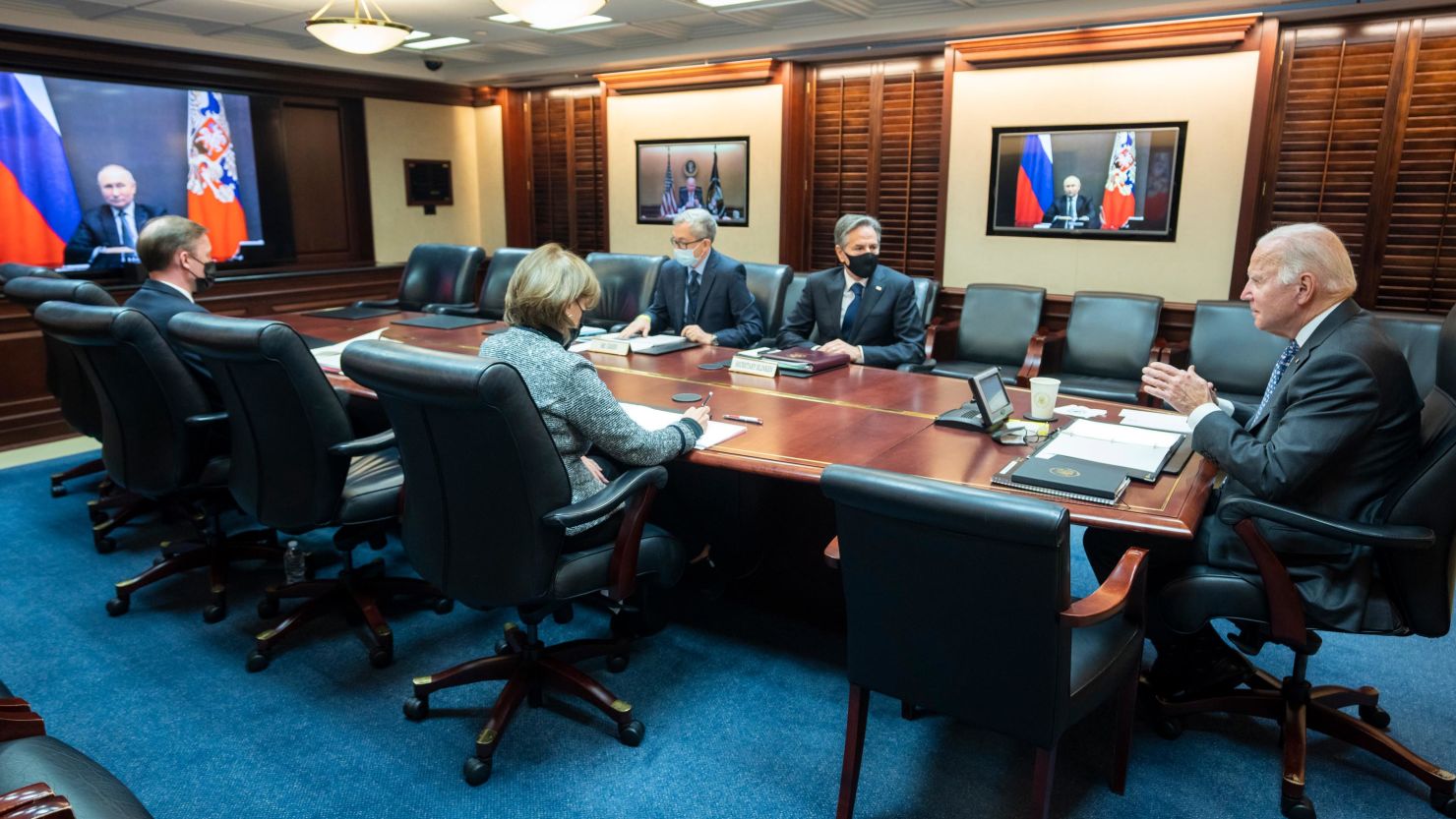Editor’s Note: This story was excerpted from the December 13 edition of CNN’s Meanwhile in America, the daily email about US politics for global readers. Click here to read past editions and subscribe.
Tensions between the Kremlin and the West are locked in a worrying cycle, with no sign yet that Vladimir Putin has been moved by threats of economic retaliation if his troops invade neighboring Ukraine. The Russian President has expressed desire for an in-person meeting with US President Joe Biden – but will the White House gamble on that?
The showdown is a test for the Biden administration, whose rushed withdrawal from Afghanistan led some to question Washington’s stomach for wielding power abroad. Also undermining long-term influence is the possibility that Donald Trump, or another autocrat-friendly Republican will be back in power in 2025. The White House has however done an effective job corralling allies to multiply diplomatic pressure on Moscow after Biden’s virtual summit with Putin last week.
G7 foreign ministers sent stark signals from their meeting in Liverpool at the weekend. “We’ve been clear that any incursion by Russia into Ukraine would have massive consequences for which there would be a severe cost,” British Foreign Secretary Liz Truss said, bolstering previous US statements. She added that democratic nations must wean themselves off Russian energy — a clear reference to the Nord Stream 2 pipeline from Russia to Germany.
The diplomatic offensive is designed to force Putin to confront this question as he masses soldiers and material on the Ukraine border: Is the domestic propaganda value of another invasion worth a destabilizing economic backlash from the West?
A statement from the Russian embassy in London hitting back at the G7 reiterated previous Kremlin assurances that Russia has no intention of invading – yet disconcertingly also appeared to rationalize doing so. “While Russia does not have a slightest intension to attack Ukraine, the situation in (the) Ukrainian civil war is indeed getting more explosive, with the irresponsible and unreserved military support some NATO countries and the UK in particular are giving to Kiev,” the statement said.
The West’s chorus of threats could work. But it is risky, since the hostile rhetoric may make it more difficult for Putin to climb down without a tangible payoff.
There is another possible off-ramp from East-West tensions. Putin told the US President last week that he’d like to sit down together in person, according to a clip released Sunday by Russian state television. “We will definitely meet, I would really like that,” Putin said. The disclosure came after it emerged that the US’s top State Department official for Europe, Karen Donfried, will travel to Russia and Ukraine this week.
Putin has, of course, used this tactic before, leveraging a massive troop deployment in the spring on Ukraine’s border to get Biden to agree to meet him in Geneva. Another in-person summit would confer the global superpower recognition that Putin, who bemoaned the demise of the Soviet Union, craves for Russia.
Asked about the potential for an in-person meeting during an interview with NBC News, US Secretary of State Antony Blinken dodged the question, saying last week’s video conference between presidents was important “because as much as I can do with my counterpart, as much as other colleagues in the government can do with theirs, when it comes to Russia, President Putin is the one person that really counts.”
And asked what it would take for Biden to agree to an in-person meeting, Blinken said only that the United States and partners in Europe were looking for signs of de-escalation and for Russia to “give Ukraine its border back.”
Such ego-soothing treatment could offer the solution that Biden’s been looking for. But without prior de-militarization at the border, Putin could also simply pocket the concession, then go ahead and invade anyway – handing Biden a place among history’s appeasers.




